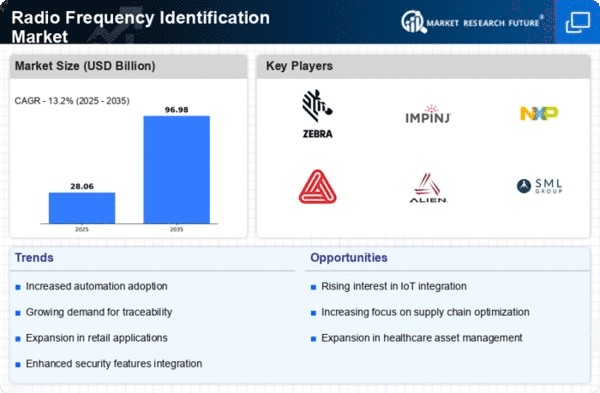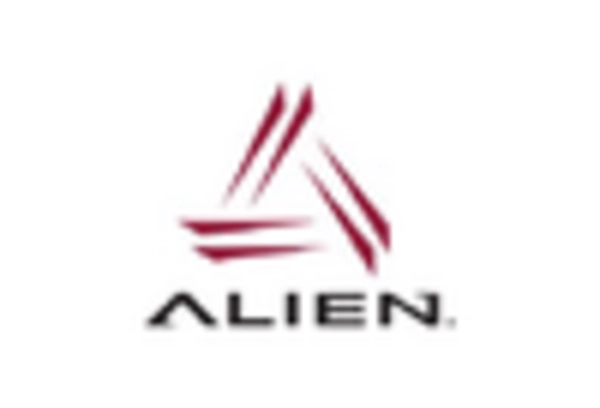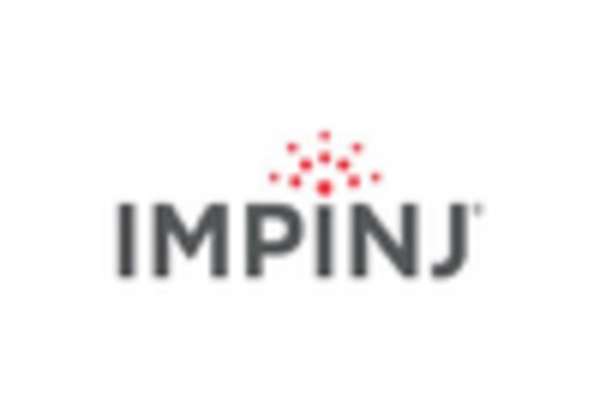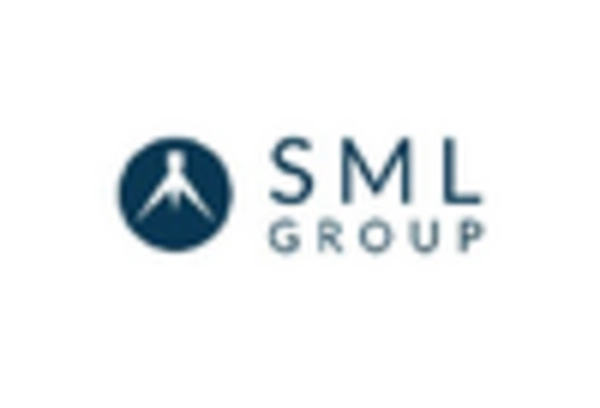Market Share
Radio Frequency Identification Market Share Analysis
To compete in the dynamic Radio-Frequency Identification (RFID) market, organizations use various market share positioning techniques. Companies often differentiate themselves from competition by offering unique features or specialized solutions. RFID vendors may produce tags with longer read ranges or higher durability to meet industry needs. Companies differentiate their offers to attract clients seeking customized solutions and develop a market presence.
Companies aspire to be the lowest-cost RFID provider through cost leadership. This method is useful in price-sensitive sectors or RFID implementations that demand scalability. Cost leadership firms optimize production processes, source resources efficiently, and use economies of scale to deliver affordable pricing without compromising RFID solution quality.
RFID market segmentation is also common. Companies identify niche markets or industries where RFID technology can solve unique problems. This tailored strategy lets businesses adapt their marketing, product features, and support services to a certain segment, enhancing their relevance and competitiveness in that niche. A corporation may specialize in RFID systems for healthcare tracking and monitoring.
RFID vendors' market share positioning depends on strategic collaborations. RFID solution suppliers can utilize complementary strengths and expand their market reach by partnering with other enterprises, technology integrators, or industry groups. For instance, partnering with software developers or system integrators can integrate the RFID solution effortlessly into existing systems or applications, giving consumers a more complete offering.
In the RFID market, recognizing and addressing consumer needs is key to success. Customer-centricity means actively engaging with customers, seeking input, and upgrading products and services based on customer preferences. Customer satisfaction helps companies retain customers and attract new ones through word-of-mouth and favorable evaluations.
Innovation is key to RFID market share positioning. Staying ahead of technology allows organizations to offer cutting-edge solutions to rising industry concerns. Innovation-driven companies become industry leaders and attract customers looking for the latest RFID solutions, whether they're developing RFID tags with advanced functions, integrating artificial intelligence for data analytics, or exploring novel RFID applications in sensor networks.
RFID firms also expand globally to gain market share. Companies attempt to enter new geographic markets by expanding into different locations as RFID technology gains popularity internationally. This requires understanding regional requirements, following local legislation, and customizing solutions to varied markets.

















Leave a Comment